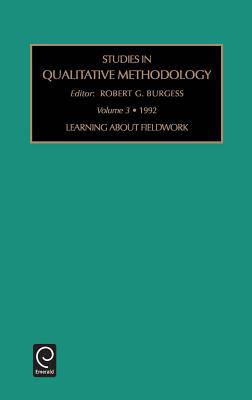
- Afhalen na 1 uur in een winkel met voorraad
- Gratis thuislevering in België vanaf € 30
- Ruim aanbod met 7 miljoen producten
- Afhalen na 1 uur in een winkel met voorraad
- Gratis thuislevering in België vanaf € 30
- Ruim aanbod met 7 miljoen producten
Zoeken
Stud Qual Meth V 3
€ 236,95
+ 473 punten
Omschrijving
The last decade has witnessed a considerable increase in research that could be broadly described as ethnographic, qualitative or a case study among investigators working within such disciplines and areas of study as sociology, criminology and education, as well as sub-fields like industrial relations and the sociology of health and healing. Such work draws on a style of investigation traditionally used by social anthropologists and includes methods such as participant observation, unstructured interviews and documentary evidence. This range of research methods is commonly included under the term field research and qualitative methodology. It is the intention of these research annuals on qualitative research to take up issues and debates in this area that relate to methodology, the relationship between data collection and data analysis, the relationship between theory and method and the implications of qualitative research for social policy and evaluation. Each volume of "Studies in Qualitative Methodology" takes a specific theme relating to qualitative research. Earlier volumes have focussed on the conduct of the qualitative research (Volume 1) and research experience (Volume 2). In all the accounts that have been provided, authors have been encouraged to write in the first person and to focus upon the methodological lessons that can be learned from field research. These themes come together in this volume (Volume 3) which focuses on the learning experience for a group of researchers who have conducted their first major study for a PhD. In this respect, the essays that follow focus on the learning experience in the field and on the process of doing research, and deal with such issues as the biography of the researcher, the role of personal experience, the process of gaining access (through sponsors, gatekeepers and informants), the collection of data through the management of field relations, the analysis of data and the writing process. The authors demonstrate the complexity of conducting fieldwork and the range of interpersonnal skills that need to be used alongside research design, writing and theorizing.
Specificaties
Betrokkenen
- Uitgeverij:
Inhoud
- Aantal bladzijden:
- 268
- Taal:
- Engels
- Reeks:
- Reeksnummer:
- nr. 3
Eigenschappen
- Productcode (EAN):
- 9781559382465
- Verschijningsdatum:
- 1/06/1992
- Uitvoering:
- Hardcover
- Formaat:
- Genaaid
- Afmetingen:
- 171 mm x 236 mm
- Gewicht:
- 562 g

Alleen bij Standaard Boekhandel
+ 473 punten op je klantenkaart van Standaard Boekhandel
Beoordelingen
We publiceren alleen reviews die voldoen aan de voorwaarden voor reviews. Bekijk onze voorwaarden voor reviews.










